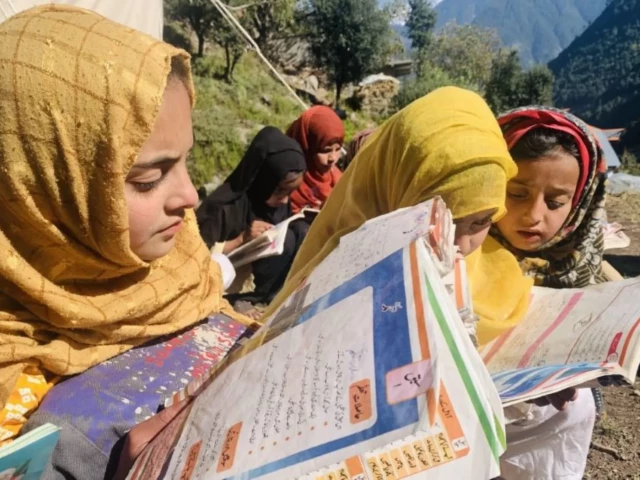Floods worsen girls' education crisis
As K-P reels from the August tragedy, widespread school destruction cuts off access to schooling for millions of girls

The devastating floods that struck Khyber-Pakhtunkhwa (K-P) in August 2025 have not only claimed lives and crippled the economy, but have also severely impacted girls' education in a province long burdened by conflict, extremism, and poverty.
According to official data, nearly 4.9 million children in K-P are currently out of school, including 2.9 million girls. In the newly merged districts, formerly known as FATA, almost one million children remain deprived of education. The recent floods have deepened this crisis by damaging hundreds of schools.
"The floods have destroyed and damaged many schools, pushing thousands of children, especially girls, even further away from education. For girls in remote areas, the closure of even one nearby school often means the end of their education. Hence safety concerns, cultural barriers, and lack of transportation make long-distance travel impossible," said Qamar Naseem, a girl's education activist.
Naseem further emphasized the need for urgent reconstruction of damaged schools and called for greater investment in girls' education alongside gender-sensitive policies. "We need policies that ensure every child in K-P, regardless of gender or location, can access safe and quality education," implored Naseem.
Data from the Elementary and Secondary Education Department (E&SED) of K-P shows that 370 schools across 14 districts were affected by the floods. Among them, 58 schools were completely destroyed while 312 were partially damaged. The worst-hit districts included Buner, Swat, Shangla, Mansehra, Abbottabad, Lower Dir, and Upper Dir.
Reconstruction is expected to cost around Rs191 million. However, no official timeline has been announced. Many of the damaged schools continue to operate without proper classrooms, boundary walls, or sanitation facilities, raising serious concerns about student safety and learning conditions.
Qamar Naseem noted that the K-P Good Governance Program could play a key role in addressing these challenges. "Good governance can improve infrastructure, teacher attendance, and overall learning outcomes especially in the merged districts where children, particularly girls, face multiple educational barriers," noted Naseem.
Experts, however, warned that this crisis must not be viewed in isolation. Beyond the damaged infrastructure, deep-rooted social and cultural factors also restrict girls' access to education. Imran Takkar, a child rights activist, emphasized that societal norms often discouraged girls' education, while poverty led families to prioritize boys' schooling.
"The root causes are complex. The lack of girls-only schools, absence of female teachers, and inadequate sanitation facilities all contribute to low female enrollment. Addressing this requires a comprehensive approach involving the building of more girls' schools, hiring of female staff, and organization of awareness campaigns to shift mindsets. Providing scholarships and school supplies can also help bring girls back to the classrooms," opined Takkar.
While the government has initiated community schools and digital learning programs, activists argued that these efforts were insufficient to tackle the crisis at scale. Hence they insisted that the rebuilding of flood-affected schools must go hand in hand with long-term reforms in the education sector to create lasting change.
On the other hand, educationists cautioned that ignoring this crisis could have long-term consequences for peace and stability in K-P. Years of militancy and conflict have already disrupted education and displaced families therefore, natural disasters like floods only worsen the situation.
"Girls' education is not just a basic right; it's a catalyst for economic growth, social cohesion, and national security. Investing in girls' education is investing in a peaceful and prosperous future for K-P," noted Takkar.
Despite multiple requests, officials from the Elementary and Secondary Education Department have not responded to queries about their plans for school reconstruction or how they intend to ensure continuity of education for students affected by the floods.






















COMMENTS
Comments are moderated and generally will be posted if they are on-topic and not abusive.
For more information, please see our Comments FAQ